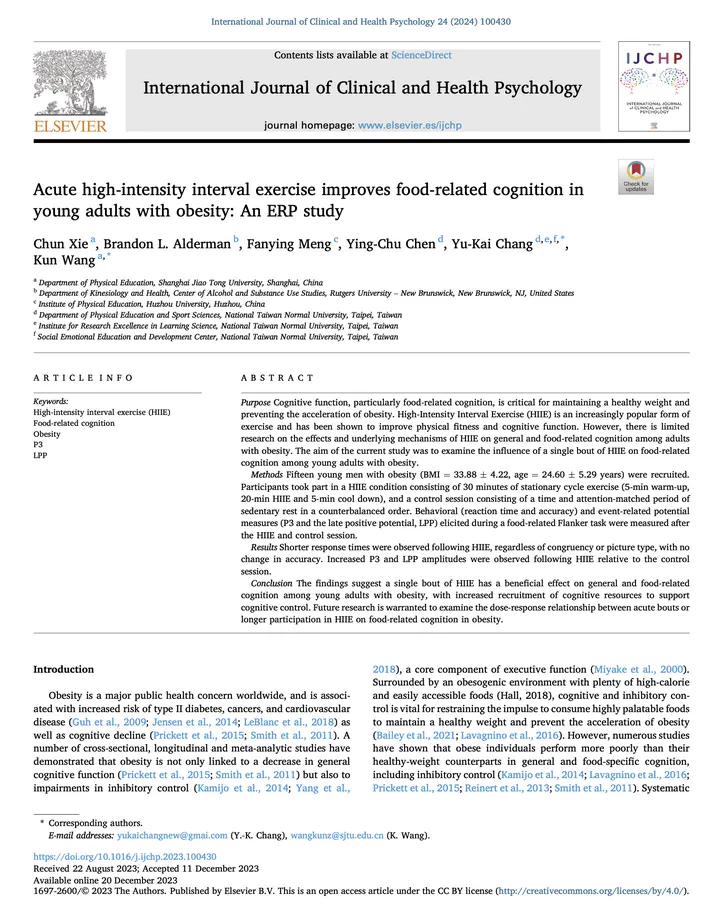Acute effects of high-intensity interval exercise on food-related cognition in young adults with obesity: An ERP study
Dec 20, 2024·
,
,
,
,
,
·
0 min read
Chun Xie
Brandon L. Alderman
Fanying Meng
Ying-Chu Chen
Yu-Kai Chang
Kun Wang
 Image credit: Chun Xie et al.
Image credit: Chun Xie et al.
Abstract
Background: Food-related cognitive control plays a vital role in weight regulation, especially for individuals with obesity, who often exhibit deficits in executive function. High-intensity interval exercise (HIIE) has emerged as a promising strategy to enhance both physical and cognitive health. This study investigated the acute effects of a single bout of HIIE on food-related executive function and event-related potential (ERP) markers in young adults with obesity.
Methods: Fifteen young males with obesity (BMI = 33.88 ± 4.22; age = 24.60 ± 5.29 years) participated in a randomized crossover trial consisting of two experimental conditions: a 30-minute HIIE session on a stationary bike (5-min warm-up, 20-min HIIE, 5-min cool down) and a time- and attention-matched sedentary control session. Cognitive performance was assessed post-intervention using a food-related Flanker task, with behavioral (reaction time, accuracy) and electrophysiological (P3 and late positive potential [LPP]) outcomes measured.
Results: Compared to the control session, the HIIE session significantly reduced reaction times across all task conditions without affecting accuracy. ERP analyses revealed significantly greater P3 and LPP amplitudes following HIIE, indicating enhanced cognitive resource allocation and attentional engagement during food-related cognitive tasks.
Conclusion: A single bout of HIIE acutely enhances food-related and general executive function in young adults with obesity, as reflected in faster response times and increased ERP amplitudes. These findings support the role of HIIE in modulating cognitive control mechanisms relevant to dietary self-regulation in obese populations. Further studies are needed to explore the dose-response effects and long-term cognitive benefits of HIIE.
Type
Publication
In International Journal of Clinical and Health Psychology